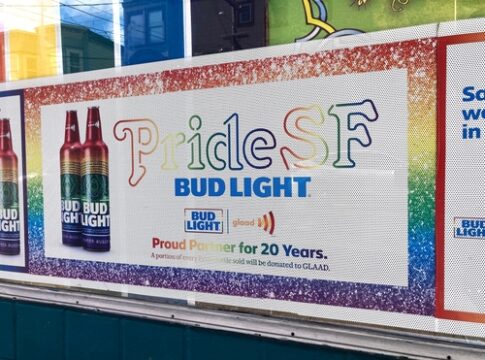Bud Light has taken a significant step in its ongoing effort to rebuild its brand by featuring comedian Shane Gillis in its latest ad campaign. This decision marks a clear pivot from the company's recent controversies and signals a broader trend of brands reassessing their marketing strategies post-DEI (Diversity, Equity, and Inclusion) backlash.
Gillis, known for his edgy and politically incorrect humor, was once a controversial figure himself, having been fired from "Saturday Night Live" in 2019 after past comments surfaced. However, his recent collaboration with Bud Light suggests that the beer giant is attempting to reconnect with its core customer base—blue-collar, middle-America consumers who may feel alienated by recent corporate trends toward DEI initiatives.
https://x.com/noahsfriedman/status/1828538168771321917
Bud Light's brand has struggled ever since its disastrous partnership with trans influencer Dylan Mulvaney earlier this year. The collaboration, aimed at promoting inclusivity, instead sparked a massive backlash among the brand's traditional customer base. Sales plummeted, and the brand became a cultural flashpoint in the ongoing debate over corporate America's shift toward progressive social values. In response, Bud Light has been scrambling to win back its core audience.
The move to feature Gillis seems to be part of a broader effort to return to Bud Light's roots, focusing on humor and everyday American experiences rather than engaging in divisive social issues. The ad campaign portrays Gillis in a lighthearted setting, enjoying a cold Bud Light with friends, devoid of any overt political messaging. It's a stark contrast to the tone-deaf campaigns of the past year and reflects a growing recognition within the company that it needs to rebuild trust with its base.
https://x.com/CollinRugg/status/1753169157947036048
Bud Light is not alone in this recalibration. Other brands that have faced backlash for embracing DEI initiatives are also rethinking their strategies. Companies like Target and Disney have similarly experienced consumer pushback after engaging in politically charged campaigns, leading them to quietly dial back some of their more controversial efforts. This trend reflects a broader cultural shift, as many Americans grow weary of what they perceive as corporate virtue signaling.
Critics of DEI initiatives argue that these efforts often alienate more customers than they attract, particularly in industries like beer and retail, where the customer base tends to be less receptive to progressive messaging. The backlash against Bud Light's previous campaign is a case in point, with many consumers feeling that the brand had abandoned them in favor of pandering to a small, vocal minority.
Bud Light's choice of Gillis as a spokesperson is likely to resonate with those consumers who felt betrayed by the brand's earlier decisions. Gillis' brand of humor, which often pokes fun at the absurdities of modern life, appeals to a demographic that values authenticity over political correctness. By aligning with Gillis, Bud Light is signaling that it wants to move away from the polarizing politics of the past and focus on what made the brand successful in the first place—good times with good friends over a cold beer.
This latest campaign is a gamble for Bud Light, but it's a calculated one. The brand is betting that by returning to its roots and distancing itself from the controversies of the past, it can regain the trust of its core consumers. If successful, this strategy could serve as a blueprint for other brands looking to navigate the increasingly treacherous waters of modern marketing.


